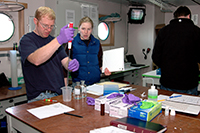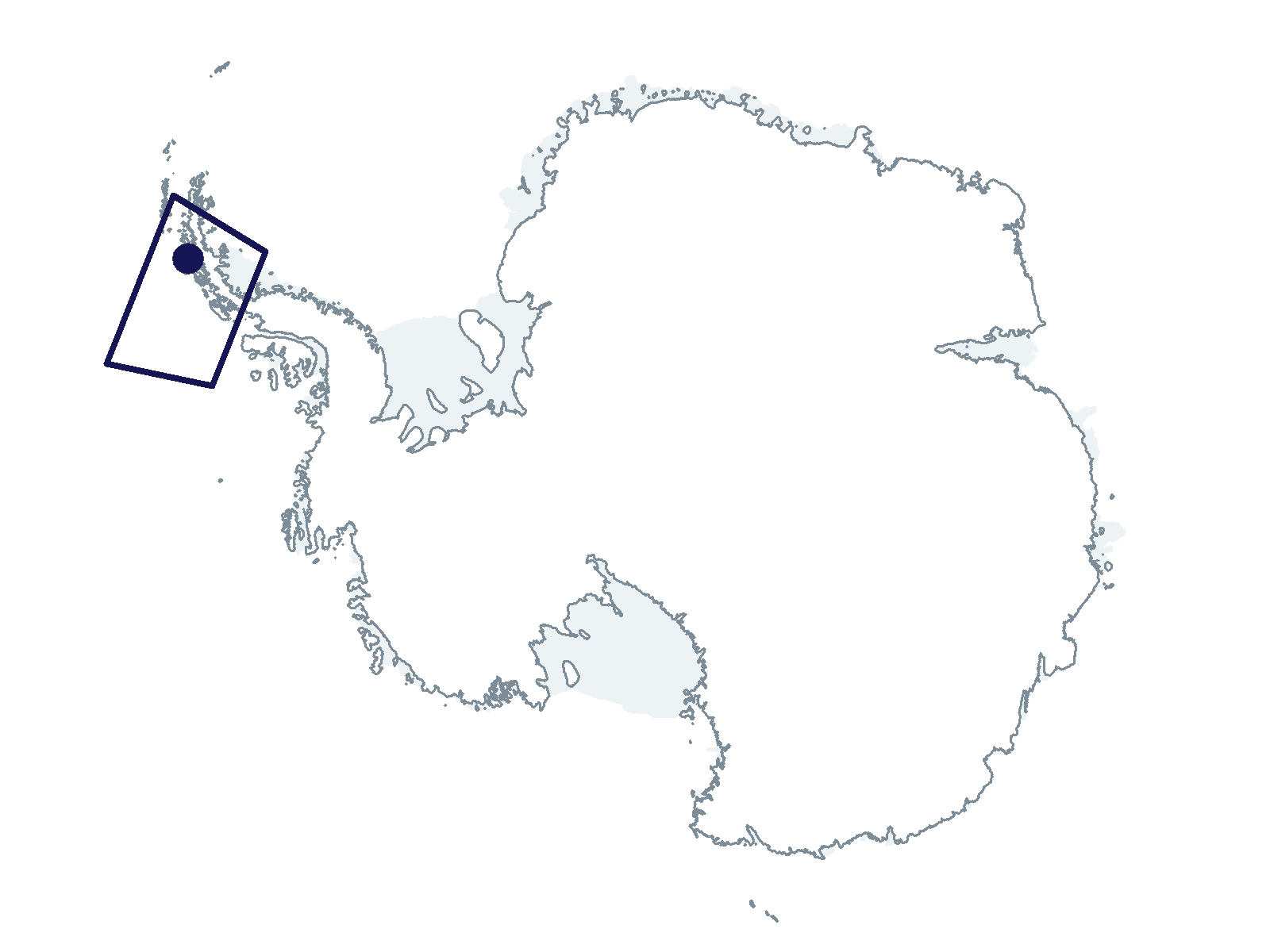2022-2023 USAP Field Season
Project Detail Project TitlePalmer, Antarctica Long-Term Ecological Research (LTER): land-shelf-ocean connectivity, and ecosystem resilience and transformation, in a sea-ice influenced pelagic ecosystem Summary
Event Number:
Program Director:
ASC POC/Implementer: Principal Investigator(s)
Dr. Benjamin Van Mooy
Location
Supporting Stations: ARSV Laurence M. Gould, Palmer Station DescriptionPalmer Long-Term Ecological Research (PAL-LTER) started in 1990 to address the hypothesis that the annual sea-ice cycle may be the major determinant of spatial/temporal changes in the structure and function of Antarctic marine communities. Research now includes bacteria, viruses, phytoplankton, krill, macrozooplankton, penguins, seabirds, and marine mammals. The PAL-LTER model traces the effects of changing climate and the extent, duration, and seasonality of sea ice on ecosystem composition and dynamics in the West Antarctic Peninsula (WAP), where satellite observations over the past 35 years indicate the average duration of sea ice cover is now about 90 days shorter. Six collaborative projects on the ARSV Laurence M. Gould (LMG) cruise and at Palmer Station will use moorings, numerical modeling, oceanographic cruises, and environmental sampling to address core hypotheses. Field Season OverviewPalmer Station Participants will be included the the core PAL-LTER sampling at Station E. Activities will include: 1) PAL-LTER sampling trips and assist the penguin/whale group as needed; 2) conducting seawater incubation experiments; 3) collecting ice core samples from seasonal sea-ice and/or fast-ice; 4) collecting live krill; 5) collecting penguin stomach contents and feces; and 6) twice weekly trips with other PAL-LTER groups into the Palmer Deep Canyon (Adelie penguin foraging area) and Bismarck Strait (gentoo penguin foraging). ARSV Laurence M. Gould The sampling region extends from Palmer Station south to Charcot Island and from onshore to the continental shelf break adjacent to the Antarctic Circumpolar Current. They will conduct several two to three day Process Studies in selected areas to study key processes in greater detail than possible at the regular grid stations. They will also sample seasonal sea-ice to assess the input of calorie-rich phytoplankton biomass into the WAP marine ecosystem. They will also conduct on-deck incubations to investigate stress responses of phytoplankton throughout the WAP in collaboration with the Schofield group. Incubations will be conducted throughout the cruise and may require additional CTD (conductivity, temperature, and depth) casts to collect water. Deploying Team Members
|
2022-2023 Science Planning Summary



For USAP Participants |
For The Public |
For Researchers and EducatorsContact UsU.S. National Science FoundationOffice of Polar Programs Geosciences Directorate 2415 Eisenhower Avenue, Suite W7100 Alexandria, VA 22314 Sign up for the NSF Office of Polar Programs newsletter and events. Feedback Form |



